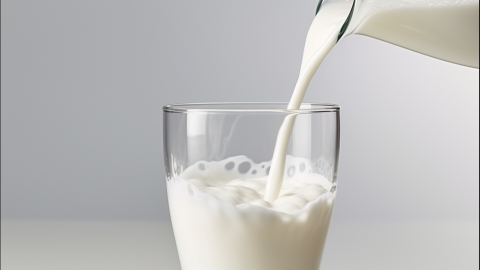Can milk and bananas be eaten together?
Generally speaking, milk and bananas can be consumed together, but it's important to control the portion size. The detailed explanation is as follows:
Milk is rich in high-quality protein, calcium, vitamin D, and B vitamins, which help maintain bone health, muscle repair, and enhance immunity. Bananas are rich in carbohydrates, potassium, vitamin C, vitamin B6, and dietary fiber, which can quickly replenish energy, maintain electrolyte balance, and promote digestion. Combining these two foods provides protein, carbohydrates, vitamins, and minerals together, offering comprehensive nutrition.

The protein in milk combines with the carbohydrates in bananas; the carbohydrates provide quick energy, while the protein continuously repairs muscles, making this combination suitable for consumption after exercise or for breakfast. Potassium in bananas helps maintain electrolyte balance in the body, while calcium and vitamin D in milk promote calcium absorption. Together, they can help prevent muscle cramps and osteoporosis.
Due to the high sugar content in bananas, it is recommended to moderate banana consumption when combining with milk to avoid blood sugar fluctuations. Individuals with weak gastrointestinal function may experience indigestion if they consume excessive milk and bananas. It is recommended to consume them in moderation and avoid excessive intake at one time.
Gastrointestinal function










